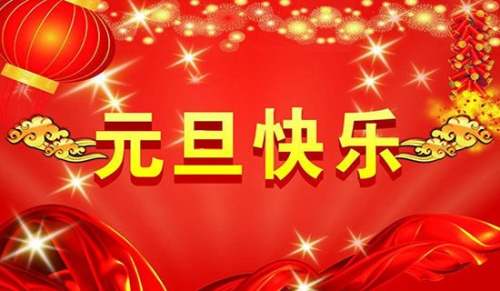- 相关推荐
圣诞与元旦的区别英语
世界上大多数国家都采用了国际通行的公历,把每年1月1日作为“元旦”。以公历为历法的国家,都以每年公历1月1日为元旦日,举国放假。下面是小编整理的圣诞与元旦的区别英语,欢迎阅览。

【圣诞节资料】
Christmas Day falls on the twenty-fifth of December. It is a very happy day for many boys and girls .
Before the term ends in some schools , the children act a nativity or “birth” play, showing how Jesus was born in a stable.
圣诞节在12月25日,它对男孩女孩们来说是快乐的一天。在一些学校学期结束前,孩子们会扮演些戏剧,耶稣怎样降生的。
On the twenty-fourth of December, all children are very excited. Usually they are sent to bed early so that their parents can get the presents ready.
The younger children think that Father Christmas will come down the chimney or fireplace , so they hang up a sock for him to put presents in.
The greedy ones even hang up a pillow-case or a sack to try to get more presents. Later that night, Father or Mother will put presents in the sock, and leave others at the side of the bed.
在12月24日,所有的孩子都非常兴奋。通常他们会很早的就去睡了这样他们的父母就可以准备礼物。
一些小孩认为圣诞老人会从烟囱或火炉中来,因此他们会悬挂袜子让(圣诞老人)放礼物。一些贪心的会挂枕垫或大袋,来拿更多的礼物。晚些,父亲或母亲会把礼物放进袜子里,并放在床边。
On Christmas morning, the children wake up very early. Some even turn on the light at two oclock, and most of them are awake by six oclock although it is not light in England for another hour or two at this time of the year.Children look for their presents , and the young ones play while the dinner is prepared.
At about one oclock in the afternoon, the Christmas dinner is brought in . The turkey or chicken is quickly eaten . Children search in their Christmas pudding for new coins which are hidden in it .
The rest of the day is full of games and eating until the happiest of all Christmas hollidays comes to an end.
在圣诞节的早上,孩子们很早就起床了。有些尽然在2点就打开灯,大多数都会在6点醒来虽然这时在英国还没天亮。
孩子们打开礼物,一些小孩在准备早餐时就开始玩着玩具。在下午1点,圣诞餐就会被准备好。
火鸡或鸡肉很快被吃完。孩子们在圣诞布丁中搜寻被藏着的硬币。剩下来的时间就是在游戏还有吃中度过的,直到圣诞假期结束。
【元旦节资料】
In ancient China, Yuan Dan was not on January 1st, as regulated in the Gregorian calendar. The date of Yuan Dan had been changed many times from the 1st of the 12th lunar month in Yin Dynasty to the 1st of the 1st lunar month in Han Dynasty.
When Sun Yat-sen took office as the temporary President in Nanjing at the beginning of January of 1912, he set the 1st of the 1st lunar month as the Spring Festival while the 1st of January was set as the New Year, which was also called Yuan Dan.
After liberation, the Central Government of China issued a National Festival and Memorial Day Holiday that set January 1st as Yuan Dan, which was a one-day holiday for the whole country.
In order to distinguish the two New Years of both the lunar calendar and solar calendar, and as the "spring beginning" of the Lunar Calendar was always around the lunar New Year, the 1st of the 1st lunar month was called the Spring Festival. Yuan means the beginning, the first. The beginning of a number is Yuan.
Dan, which is a pictographic character in the Chinese language, means the day rises from the horizon, symbolizing the beginning of a day. When Yuan and Dan are combined, it means the first day of a New Year.
Yuan Dan is also called Three Yuan, the beginning of a year, the beginning of a month and the beginning of an hour. The word Yuan Dan was first used during the Three Emperors and Five Sovereigns era.
在古代,按公历来说,元旦不仅仅是一月一号这一天。元旦的日期从殷朝腊月初一改到汉朝的正月初一。
公元1911年,孙中山领导的辛亥革命 ,推翻了满清的统治,建立了中华民国。各省都督代表在南京开会,决定使用公历,把农历的正月初一叫做“春节”,把公历的1月1日叫做“元旦”。新中国成立后,中国出台了关于全国假日和战争纪念日的放假规定时,定1月1号为元旦,全国放假一天。
为了区别农历和阳历的两个新年有鉴于农历二十四节气中的“立春”恰在农历新年的前后,因此便把农历正月初一改称为“春节”。
“元”意为开始,第一,数字的第一个称元。“旦”在中国文字里是象形文字,其意思为太阳从地平线上圣骑,意为一天的开始。
当“元”和“旦”相结合,意思就成了一年开始得第一天。元旦又称“三元”,即岁之元、月之元、时之元。 元旦最早可以追溯到“ 三皇五帝时期”( “三皇”指天皇、地皇、人皇。“五帝”指木帝、火帝、土帝、金帝和水帝。 )
In Jin Shu, compiled by Fang Xuanling in the Tang Dynasty, the first lunar month was called Yuan and the 1st day was called Dan.
元旦一词始于三皇五帝,唐房玄龄等人写的《晋书》上载,把正月称为元,初一为旦。
【圣诞与元旦的区别英语】相关文章:
考研英语一与英语二的区别11-29
英式英语与美式英语发音的区别09-19
英语一和英语二的区别06-27
考研英语与四六级的区别08-12
英语同源副词的区别介绍09-16
英式英语和美式英语语法的区别05-27
浅谈四级与考研英语的区别06-28
小升初英语知识要点some和any的区别02-16
英语同源形容词的区别介绍06-06